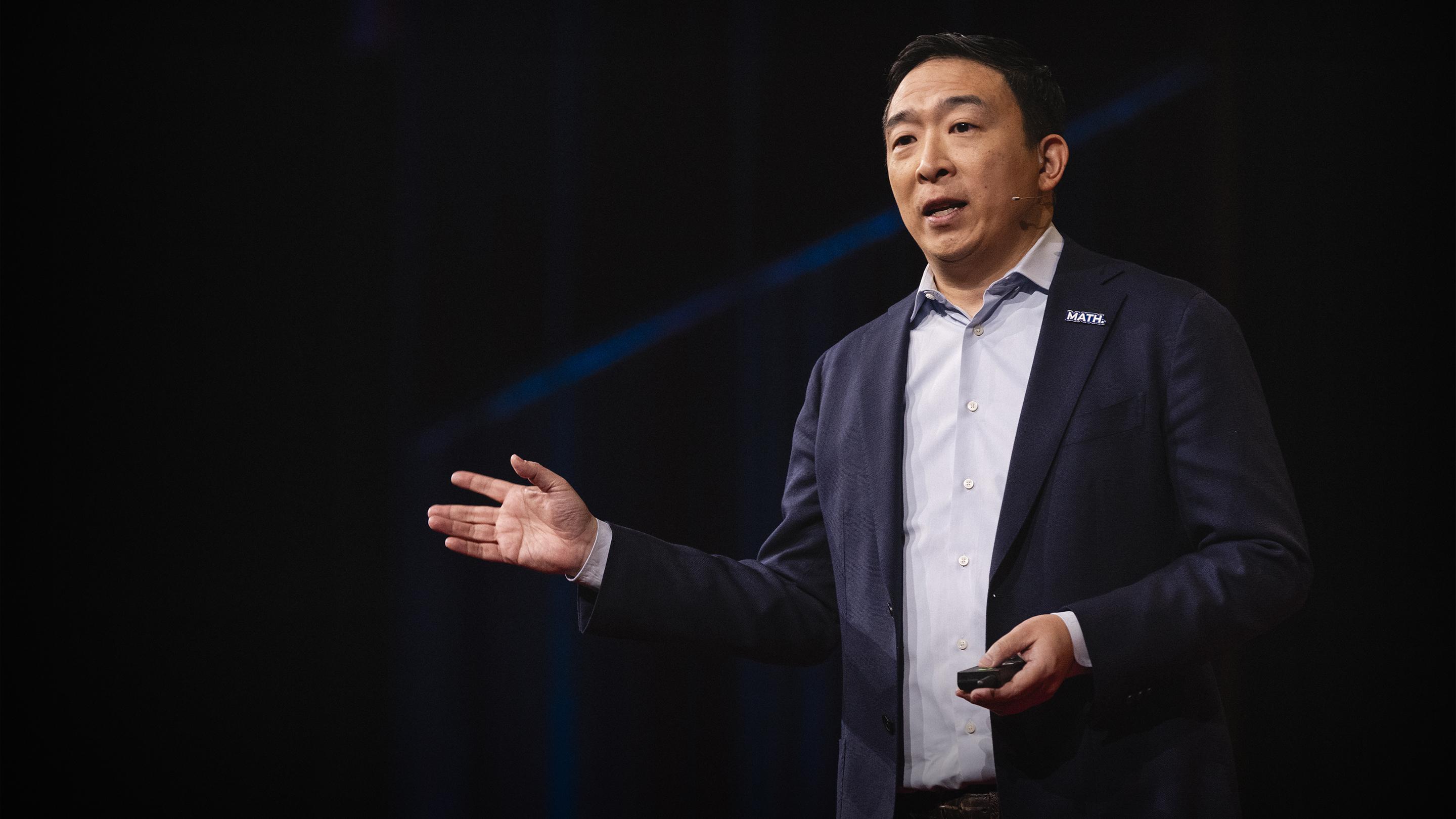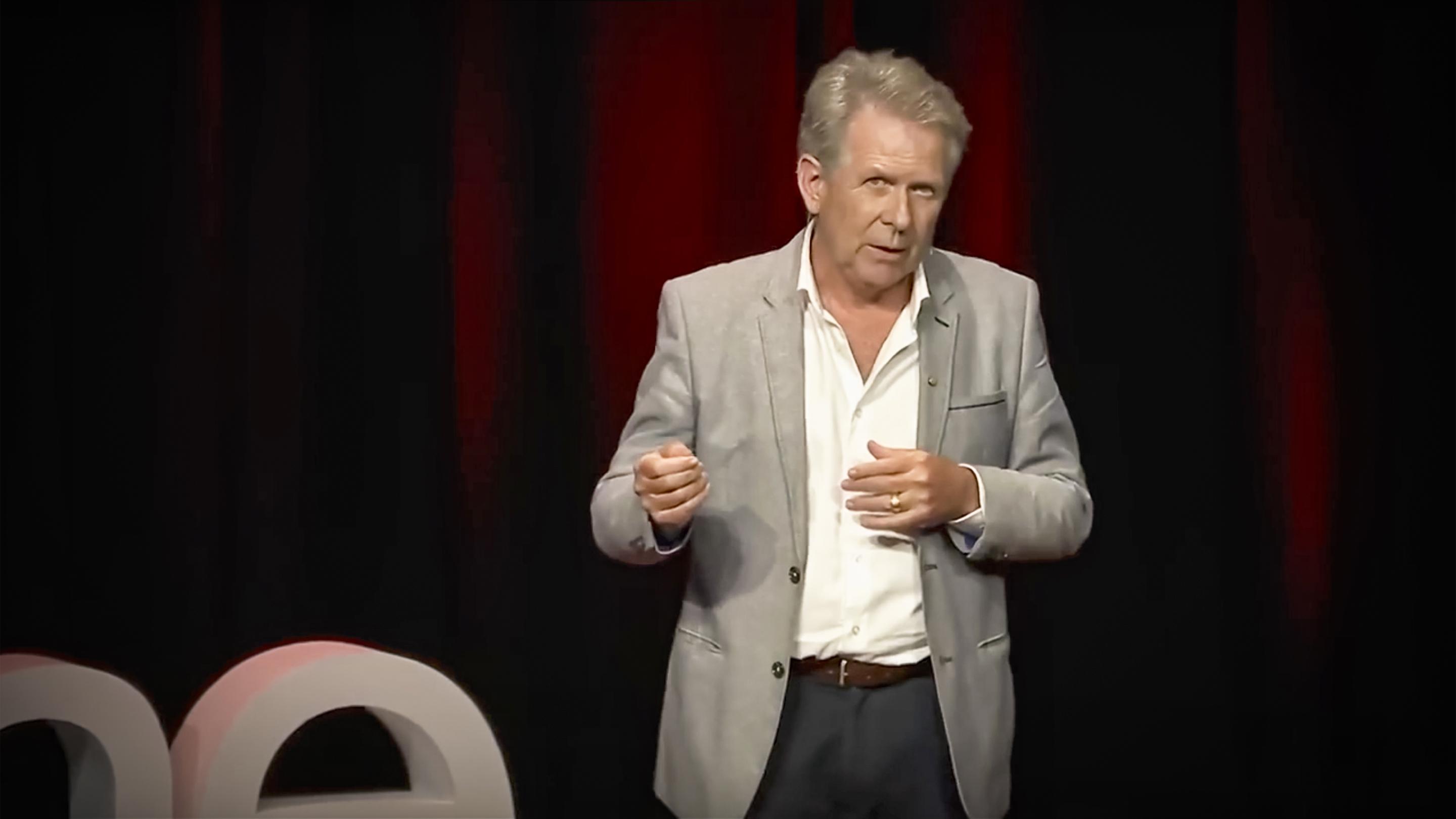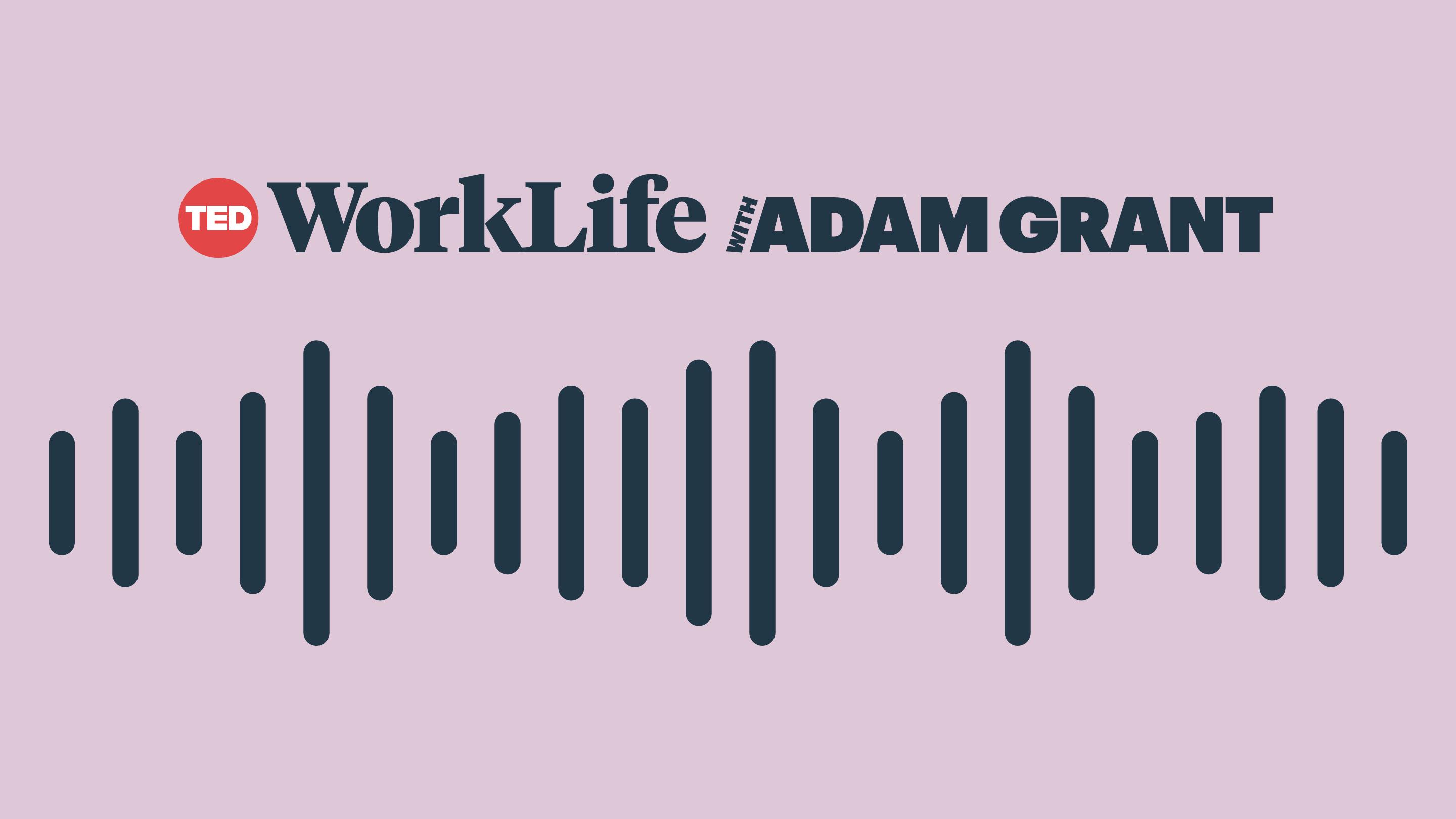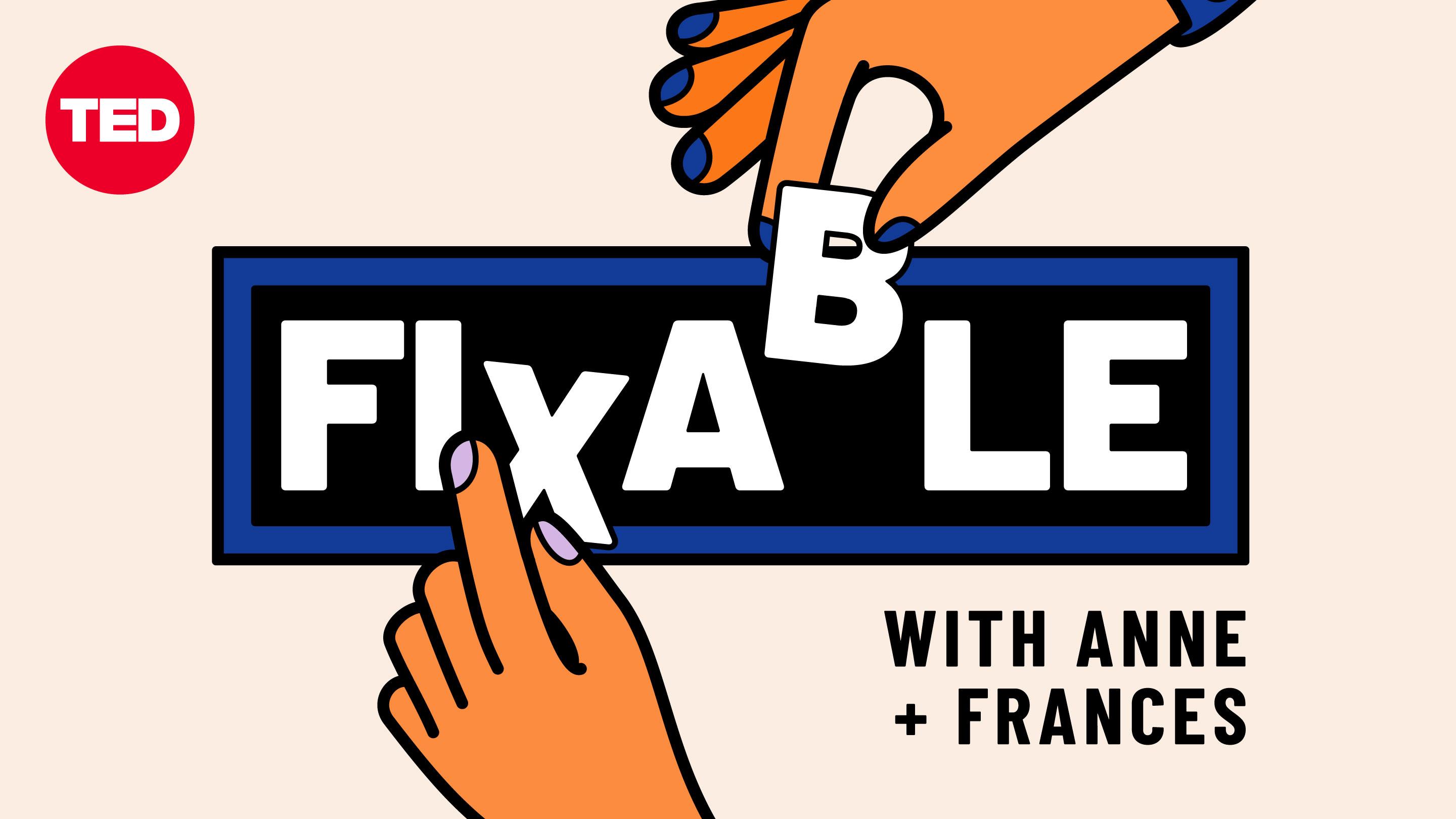Discover TED Talks Daily
TED Talks Daily

TED Talks Daily
Author: TED
Subscribed: 2,421,721Played: 90,441,856Subscribe
Share
© Creative Commons: https://creativecommons.org/licenses/by-nc-nd/4.0/
Description
Every weekday, TED Talks Daily brings you the latest talks in audio. Join host and journalist Elise Hu for thought-provoking ideas on every subject imaginable — from Artificial Intelligence to Zoology, and everything in between — given by the world's leading thinkers and creators. With TED Talks Daily, find some space in your day to change your perspectives, ignite your curiosity, and learn something new.
506 Episodes
Reverse
In an exclusive preview of unreleased technology, designer and inventor Jason Rugolo unveils an entirely new kind of computer you can talk to like a friend. This "audio computer" — which can augment the sounds around you, translate conversations in real time, naturally respond to your voice and more — promises to shake up how we use our devices. It's shown publicly for the first time ever on the TED stage.
The political system in the United States needs a redesign, says political reformer Andrew Yang. Exposing the flaws of a system built on poor incentives, he proposes a cost-effective overhaul inspired by primary elections already working in places like Alaska and advocates for ranked-choice voting, where voters can choose candidates in order of preference regardless of party, stemming the influence of extreme ideologies.
How much should we invest in teachers, and what should new investment actually involve? Education innovator Randy Seriguchi Jr. suggests the US should create a "G.I. Bill" for teachers, with a particular emphasis on uplifting Black male professionals. He shares a model of this idea in action through community partnerships in San Francisco, which provide aspiring teachers with graduate school tuition, subsidized housing, personalized fit assessments and more. "If we truly want to elevate this profession to inspire new, diverse talent to join us, we have to improve both the personal and professional experiences associated with teaching," says Seriguchi.
Each Sunday, TED shares an episode of another podcast we think you'll love, handpicked for you … by us. Today: in celebration of Star Wars Day, we're sharing an episode from The Redemption of Jar Jar Binks, TED's first narrative show. It explores how Jar Jar Binks became one of the most polarizing figures in cinematic history when he made his debut in Star Wars Episode 1: The Phantom Menace.
It’s 1999, and sixteen years after its original release, a new Star Wars is finally coming. Fans have been camping out in front of theaters across the country just to be the first to see it. The beloved intergalactic saga is set to debut a slew of brand new characters, one of whom is a revolutionary CGI creation named Jar Jar Binks. Whispers begin to spread about big changes coming to the galaxy far, far away — and not everyone’s happy about it. Transcripts for The Redemption of Jar Jar Binks are available at go.ted.com/jarjar
When it comes to climate, what are we doing right and where should we focus our efforts next? Systems innovator Ryan Panchadsaram and strategist Anjali Grover talk with TED science curator David Biello about the latest on the world's progress toward solving the climate crisis — and why there's more reason for optimism than you might think. Using strategic goal-setting tools that have transformed countless organizations, Panchadsaram and Grover explore the urgent actions needed to steer the planet toward a sustainable future and the pivotal roles of innovation, investment and policy. "The climate story isn't yet written," Grover says.
Marrying for love is a relatively recent phenomenon for humanity, and we still don't fully understand what it means for building successful relationships, says author and psychiatrist George Blair-West. Drawing from his extensive experience working with couples, he shares four questions every couple should ask themselves before tying the knot — and highlights surprising findings on how the way marriage starts impacts if it ends.
In a scorching talk, marketing professor and podcaster Scott Galloway dissects the data showing that, by many measures, young people in the US are worse off financially than ever before. He unpacks the root causes and effects of this "great intergenerational theft," asking why we let it continue and showing how we could make it end. (Note: This talk contains mature language.)
No one truly understands AI, not even experts, says Helen Toner, an AI policy researcher and former board member of OpenAI. But that doesn't mean we can't govern it. She shows how we can make smart policies to regulate this technology even as we struggle to predict where it's headed — and why the right actions, right now, can shape the future we want.
What challenges lie ahead of a staggering 12,700-kilometer paddle around the entire continent of Australia? Crocodiles and sharks were just the beginning, says Ironwoman Bonnie Hancock. Reflecting on her remarkable feat of becoming the fastest person to paddle around Australia, she shares lessons on perseverance, resilience and finding meaning in life's toughest moments.
Can AI help us answer life's biggest questions? In this visionary conversation, Google DeepMind cofounder and CEO Demis Hassabis delves into the history and incredible capabilities of AI with head of TED Chris Anderson. Hassabis explains how AI models like AlphaFold — which accurately predicted the shapes of all 200 million proteins known to science in under a year — have already accelerated scientific discovery in ways that will benefit humanity. Next up? Hassabis says AI has the potential to unlock the greatest mysteries surrounding our minds, bodies and the universe.
Each Sunday, TED shares an episode we think you'll love, handpicked for you… by us. Today: an episode from WorkLife with Adam Grant, the podcast that explores the science of making work not suck.
Is “do what you love” terrible advice? Adam investigates why taking the job that will make you happiest is not as helpful as looking for the one where you’ll learn the most.
Find the transcript at go.ted.com/worklifepassion
Louise Mabulo grew up on seemingly strange farming tips from her parents and grandparents — like planting crops during a full moon or burying a rock beneath them. Now a farmer and climate activist herself, she sees how these practical nuggets of wisdom actually have scientific merit. Learn how she's merging traditional knowledge with modern science to help farmers (and the world) adapt to a changing climate.
Too often, employees are unmotivated and unhappy, with no real incentive to invest much of anything into their place of work. Investment expert Pete Stavros thinks there's a better way, and he's on a mission to rethink corporate structures to expand who benefits from a thriving company. Sharing personal stories of his own journey along with the profound impact doing this work effectively can have, this moving talk provides a blueprint for changing the narrative — and outlook — for millions of workers worldwide.
Uncontrolled fire threatens nature — but the right kind of fire can maintain the health and balance of the land, says fire management expert Oral McGuire. As a leader in the Nyungar community of southwestern Australia and a former firefighter, he connects traditional wisdom with modern techniques to wield fire in a way that promotes biodiversity and heals the spirit of the land at the same time.
Welcome to the "Auntieverse" — a surreal tribute to "auntie culture" by artist Niceaunties, inspired by the spirit of the women who care for each other and their families. From sushi-bedecked cars with legs to hot tub baths full of ramen, Niceaunties shares a visual feast that fuses AI and imagination and celebrates the eccentric, vibrant world of aunties with reverence and awe.
"Storytelling is one of the most powerful marketing and leadership tools there is," says communications expert Kelly D. Parker. She explains how stories make proposals of all kinds more memorable — and shows how you can craft a compelling narrative to connect, persuade and drive meaningful action.
When it comes to artificial intelligence, what are we actually creating? Even those closest to its development are struggling to describe exactly where things are headed, says Microsoft AI CEO Mustafa Suleyman, one of the primary architects of the AI models many of us use today. He offers an honest and compelling new vision for the future of AI, proposing an unignorable metaphor — a new digital species — to focus attention on this extraordinary moment. (Followed by a Q&A with head of TED Chris Anderson)
Each Sunday, TED shares an episode of another podcast we think you'll love, handpicked for you… by us. Today: an episode from Fixable, TED's business call-in advice show hosted by leadership experts Anne Morriss and Frances Frei.
Multiple deadly crashes, a door flying off mid-flight, a CEO forced to step down Boeing has had more than a few disasters. And in case anyone at Boeing is listening, Anne and Frances have some advice to offer for our first ever "Unsolicited Advice" episode. How can a company redeem itself after so many appalling headlines? Where does the leadership team go from here? Listen for valuable takeaways anyone can learn from on taking "radical responsibility" for an organization's performance.
What problems are you dealing with at work right now? Text 234-FIXABLE or email fixable@ted.com to be featured on the show.
Transcripts for Fixable are available at go.ted.com/fixabletranscripts
Can cannabis actually treat insomnia? It's complicated, says sleep physiologist Jen Walsh. While the plant has been used across time and cultures, there's been little scientific research on how it impacts sleep disorders like insomnia. That's precisely where she and her team come in. Learn about the world's first study into the potential of medicinal cannabis as a safe, accessible treatment to help us all rest easy.
The convergence of AI and robotics will unlock a wonderful new world of possibilities in everyday life, says robotics and AI pioneer Daniela Rus. Diving into the way machines think, she reveals how "liquid networks" — a revolutionary class of AI that mimics the neural processes of simple organisms — could help intelligent machines process information more efficiently and give rise to "physical intelligence" that will enable AI to operate beyond digital confines and engage dynamically in the real world.




























